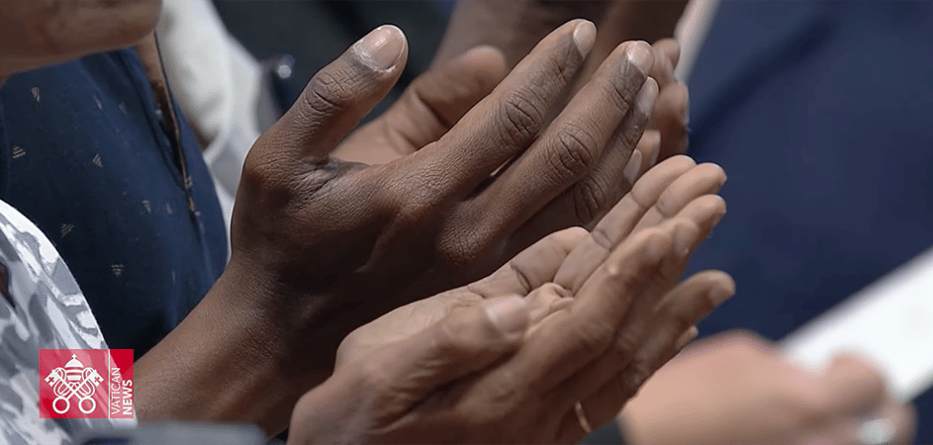With two Sundays down, the journey of Lent continues. The season is probably passing some people by due to a misplaced activism. While others are wishing it would just wrap up because they’re ready to get their coffee, chocolate, or favored creature comfort back.
In this crowd, however, there are some believers and people of good will who are taking Lent at face value. They understand that these forty days are an invitation to the desert and to a time of uncomfortable examination of their lives and the motivations of their hearts.
Such folks labor to do the work of Lent so as to receive its proper blessings, which is not merely weight loss, or the overcoming of a caffeine addiction, but a deep awareness of who we are and where we stand in relation to God and our neighbor.
This is Lent. As we do this assessment of our hearts, we look for bad spirits, those impulses or twisted thoughts that never bring out our best.
In his collection of meditations called “The Spiritual Exercises,” St. Ignatius of Loyola guides us through a reflection on The Two Standards. In the meditation, we are to imagine the kingdom of Jesus Christ and that of the Evil One. We are to discern the work of the Evil One so as to conquer it within our souls.
The saint, a spiritual father to Pope Francis, tells us to pay particular attention to pride, vanity, and greed. He identifies these three sensitive areas of the human heart.
Of these three dark spirits, vanity can be the hardest to identify since it works so dynamically to justify itself with such assertions: I deserve this recognition! No one can accomplish this work like me! Look at my success! Why don’t others see the excellence of my beauty or talents? Why have I not been more acknowledged or recognized?
Vanity is always running a campaign to canonize itself. It works tirelessly to prove its legitimacy and takes on the disguise of noble intentions or results. Beyond the games it plays, however, the reality is that vanity is a cancer within the human heart. It’s a “nothing” that eats away the human soul, feeding on a failed attempt to self-heal insecurity on the one hand or nourish self-absorption on the other.
Vanity slowly deforms the fragility of our souls and it introduces an alienation between ourselves and God since we’re competing with him and a tension between ourselves and our neighbor since we think they’re inferior to us.
Vanity is not a happy life. It is one marked by masks, facades, manipulation, false worship, and an insatiable desire for attention that makes the entire world a stage with only one spotlight for ourselves.
As far off and evil as this might sound, vanity can be even darker for the believer. For the person of faith, vanity is not solely the love of our appearance or the aggrandizement of our talents.
Far more interiorly for the Christian disciple, vanity could actually be doing what is right, virtuous, and holy for the sole purpose that others might see us and revere us, pity us, or give us an attention that we pretend to want for God and which betrays the very path of self-sacrifice that we claim to pursue.
As one existentialist observer noted: “Some ascend the cross of Calvary so that more people might see them suffer.”
In the work to identify vanity, we can all be both inspired and disturbed by the play “Murder in the Cathedral.” In it, T.S. Eliot describes the spiritual struggles of Archbishop Thomas Becket as he prepares for his murderous death.
He knows the soldiers are coming and he walks through three temptations: a fear of death and a want for physical safety; riches, fame, and the king’s favor; and, a collated rebellion with the barons against the king.
The archbishop resists each temptation, but there is a fourth and unexpected temptation. It hits the prelate hard. It’s a whispered vanity: Resign to martyrdom so that you may be glorified and others will honor you. This last temptation is eventually thrown off but it shakes the archbishop.
By fighting it, Thomas Becket is prepared for a holy death and a truly noble martyrdom.
And so, vanity shows us that we are never so close to evil as when we think we’re vanquishing it. Lent is about evaluating our souls. It’s about looking for vanity and other dark spirits within us, however hidden or nobly expressed. It’s about purifying our intentions and working to do the right thing for the right reasons.
If we allow it, Lent can help us. The person of good will and the Christian believer both legitimately look for a balanced acknowledgment of their work and talents, but they also strive to see, praise, and bring out the talents and the goodness in others. They desire the affirmation of their neighbors before themselves.
This is the death of vanity, and the birth of who we are called to be. It’s the birth of virtue and holiness.


















